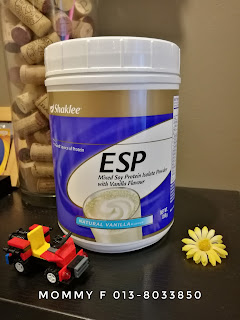Why is it so? Should we put all the blame to the female?
No, infertility is not always a woman's problem. Both
women and men can have problems that cause infertility. About one-third of
infertility cases are caused by women's problems. Another one third of
fertility problems are due to the man. The other cases are caused by a mixture
of male and female problems or by unknown problems.
Infertility in men is most
often caused by:
- A problem called
varicocele (VAIR-ih-koh-seel). This happens when the veins on a man's
testicle(s) are too large. This heats the testicles. The heat can affect
the number or shape of the sperm.
- Other factors that
cause a man to make too few sperm or none at all.
- Movement of the sperm.
This may be caused by the shape of the sperm. Sometimes injuries or other
damage to the reproductive system block the sperm.
Sometimes a man is born
with the problems that affect his sperm. Other times problems start later in
life due to illness or injury. For example, cystic fibrosis often causes
infertility in men.
The most common causes of female infertility include problems with ovulation, damage to fallopian tubes or uterus, or problems with the cervix. age can contribute to infertility because as a woman ages, her fertility naturally tends to decrease.
The most common causes of female infertility include problems with ovulation, damage to fallopian tubes or uterus, or problems with the cervix. Age can contribute to infertility because as a woman ages, her fertility naturally tends to decrease.
Do you wish to increase the chance of fertility? If yes, the this is for you.
- Go for monthly or quarterly check-ups
- Keep your weight in check
- Sleep 8 hours a day
- Say no to smoke, drugs and alcohol
- Exercise
- Keep stress under control
- Eat healthy
- Eat a multivitamins
- Regular sex
- Detox
To eat healthy can be very challenging in the modern era. Erratic eating habits, insufficient chewing of food, eating on the run, and stress contribute to poor digestion, making it difficult for our bodies to extract all the nutrients it needs from food. Furthermore, many fruits and vegetables are genetically bred to improve visual appeal and crop yields, not nutritional value, which frequently results in lesser nutritional values than our ancestors' food supply.
That is why, it is also important to take your supplements if you are unable to eat a healthy diet everyday.
But how does supplements help to increase the chance of fertility?
It is always important to choose the right supplements. I would highly recommend supplements from Shaklee because of the following reasons:
Always SAFE - Over 80,000 tests each year
Always WORKS - $250 million in research
Always GREEN - Environmental leadership
(1) B-Complex
Shaklee B comp comes with folic acid and it is very good for those who are preparing to get pregnant. It can help to prevent stress and good for blood circulation too. Remember, if you are under stress, the chances of you to get pregnant can be very very slim. So, relax and take your B-complex.
(2) Omegaguard
Omegaguard can help to balance up the male
hormone. Normally, there are higher Omega 6 in the male's body. Thus, the Omega 3 from
Omegaguard actually helps to balance that hormone. Besides, Omega-3 acids have been shown to
help fertility by:
✔Aiding in hormonal regulation
✔Increasing and promoting healthy
cervical mucous production
✔Promoting regular ovulation
✔Decreasing inflammatory fertility
issues such as endometriosis, uterine fibroids, ovarian cysts
✔Reducing painful menstruation
known as dysmenorrhea
✔Improving the quality of the uterus
by increasing the blood flow to the reproductive organs
✔Supporting proper sperm production. By increasing the intake of essential fatty acids through the
consumption of fish or cod liver oil, the resulting sperm are healthier, have
better motility, and the chances of a successful conception increase.
(3) Vitamin C
Vitamin C is very good for the reproductive system for both male and females.
Male:
Vitamin
C has been shown to improve sperm quality and protect sperm from DNA damage;
helping to reduce the chance of miscarriage and chromosomal defects. Vitamin C
protects sperm from oxidative damage due to free radicals. Studies
show that vitamin C deficiency has been linked to low sperm count, poor sperm
motility and morphology. Vitamin C is necessary to not only ensure healthy
sperm, but to support them in getting where they need to go.
Female:
Vitamin C Plays A Role In
Ovulation And Egg Health. Researchers have shown that
ascorbic acid plays an important role in the regulation of the menstrual cycle and ovarian function.
Ascorbic acid excretion is increased and declines immediately prior to
ovulation, and then immediately increases again just after temperature rises
post-ovulation. Researchers speculate this reflects uptake of ascorbic acid in
the preovulatory ovary, which then facilitates proper ovulation. These ascorbic
acid levels are stimulatory to the hormones progesterone and oxytocin, and have
been found in high concentrations in the corpus luteum.
(4) Ostematrix
Shaklee Ostematrix is specially formulated with a matrix of
7 critical nutrients including calcium, vitamin D, magnesium, zinc, copper,
manganese and boron.
(5) CoQ-Trol
Shaklee CoQ-Trol has proven to help to increase fertility rate by increasing sperm motility and quality. Among 228 infertile men, 114 men were given 200 mg of CoQ-Trol daily, while 114 men act as control. The result of sperm count and motility were encouraging as shown in the bar graph below.
A high level of Coenzyme Q10 found in CoQ-Trol in the mitochondria increases sperm movement!!
CoQ-Trol also acts as antioxidant to protect sperm from free radical damage and BOOST sperm count because it comes with Resveratrol!!
On top of that, CoQ-Trol helps to improve the quality of ovum and also increases the chance of pregnancy.
(6) ESP (Energized Soy Protein)
Protein is an essential part of any diet, and it is a very crucial diet especially for couples who wished to increase their fertility rate. Women need at least 46 grams of protein every day while preparing for
conception and after pregnancy, while men need around 52 grams every day. One of the most important factors in
having healthy fertility is keeping your blood sugar level. The easiest way to
do this is to make sure you have some protein in every meal you are eating.
ESP can be a very good option because it has no sugar and it is not sweet at all.
ESP
:
✔
give you energy so that you won’t feel exhausted. Try to conceive couple cannot
feel stress or too tired.
✔
healthy fertility requires healthy body cells. Protein build healthy cells –
good sperms and ovum.
✔helps
to stabilized your body blood sugar
Feel free to drop me a message if you need more info about Shaklee Try to Conceive Set.
For those who have bought yours from Mommy F, I wish you all the best and I'll always remember you in my prayer.
I'll definitely pray for a cute Shaklee baby this year.
Dr. Mommy F
Shaklee Independent Distributor
www.wasap.my/60138033850
#trytoconceivewithmommyf
#healthywithmommyf

























No comments:
Post a Comment